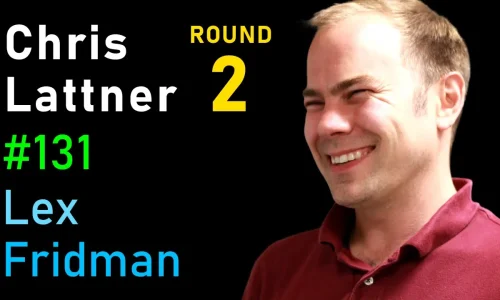See all Lex Fridman transcripts on Youtube

Chris Lattner: The Future of Computing and Programming Languages | Lex Fridman Podcast #131
2 hours 42 minutes 40 seconds
🇬🇧 English

Omnivision Solutions Ltd
- Getting Started
- Create Transcript
- Pricing
- FAQs
- Recent Transcriptions
- Roadmap